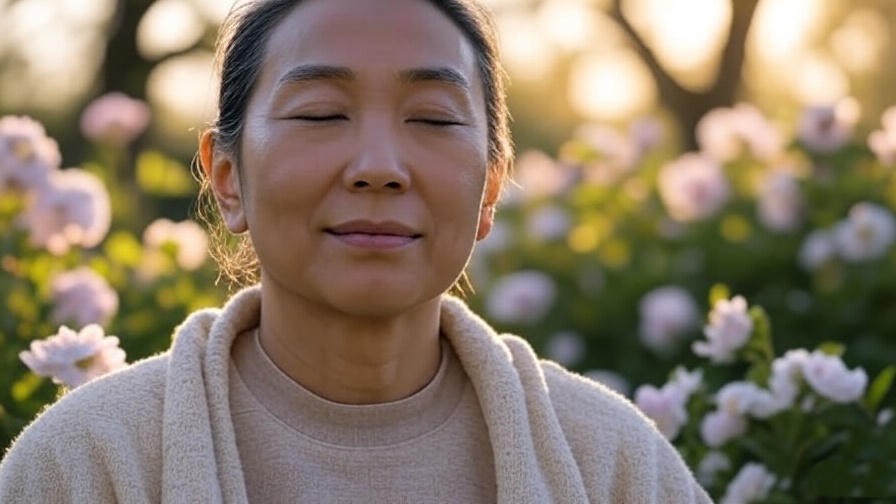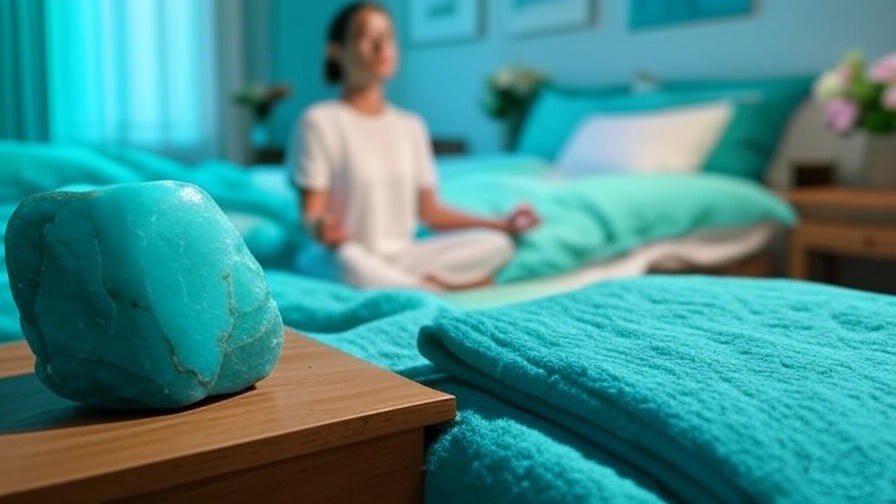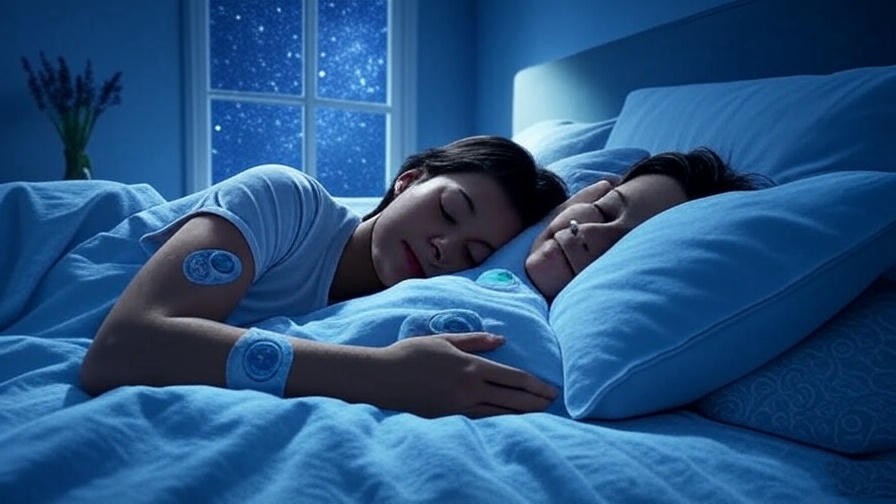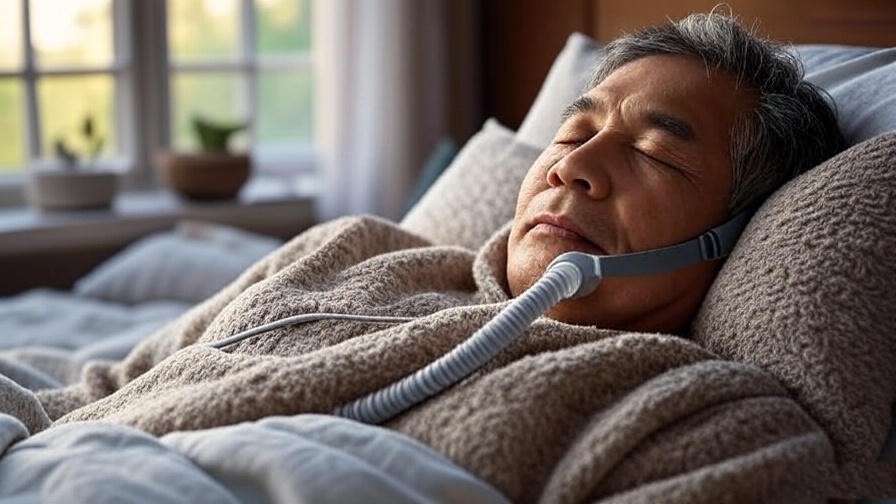Tossing and turning at 2 a.m., staring at the ceiling while your mind races—sound familiar? You’re not alone. Millions struggle to achieve restful sleep, leaving them drained, irritable, and disconnected from their best selves. Enter Erome sleep, a transformative approach to nightly rituals that combines science-backed strategies with holistic well-being principles to help you fall asleep faster, stay asleep longer, and wake up refreshed. Designed for those seeking practical solutions to enhance sleep quality, these rituals align with meditation, mindfulness, and happiness—core pillars of a balanced life. In this article, we’ll share seven proven nightly rituals, grounded in sleep science and expert insights, to elevate your sleep and transform your well-being.
As a sleep enthusiast with years of experience studying holistic wellness, I’ve collaborated with sleep researchers and meditation experts to craft this guide. Backed by studies from the National Sleep Foundation and leading journals, these rituals are designed to address common sleep struggles and empower you to take control of your nights. Let’s dive into why sleep matters and how Erome sleep can change your life.
Why Sleep Quality Matters for Holistic Well-Being
The Science of Sleep and Its Impact on Health
Sleep is the cornerstone of physical, mental, and emotional health. During sleep, your body repairs tissues, boosts immune function, and consolidates memories. According to a 2023 study in Sleep Medicine Reviews, adults who consistently get 7–9 hours of quality sleep reduce their risk of chronic conditions like heart disease and diabetes by up to 20%. Mentally, sleep enhances focus, problem-solving, and emotional regulation. Without it, stress hormones like cortisol spike, leading to anxiety and mood swings. Poor sleep also dims happiness, making it harder to find joy in daily life.
What Is “Erome Sleep”?
Erome sleep is a holistic framework that blends intentional bedtime routines, mindfulness, and environmental optimization to create restorative sleep. Unlike quick fixes like sleeping pills, it emphasizes natural, sustainable habits that align with your body’s circadian rhythm. Rooted in the principles of meditation and well-being, Erome sleep resonates with readers of this website who value dreams, happiness, and holistic health. It’s accessible to everyone—no fancy gadgets required—just a commitment to nurturing your nights.
The Problem: Common Barriers to Quality Sleep
External Factors Disrupting Sleep
Your sleep environment can make or break your rest. Noise, artificial light, and an uncomfortable mattress are common culprits. The Centers for Disease Control and Prevention (CDC) reports that 35% of adults experience sleep disturbances due to environmental factors. For example, exposure to blue light from screens suppresses melatonin, the hormone that signals sleep, delaying your ability to drift off. A cluttered or overly warm bedroom can also disrupt your body’s ability to relax.
Internal Factors and Stress
Internal barriers like stress and anxiety are equally disruptive. A 2024 study in Frontiers in Psychology found that chronic stress reduces REM sleep, the stage critical for emotional processing and vivid dreams. Overthinking, irregular schedules, and caffeine consumption late in the day can throw your circadian rhythm out of sync, leaving you wired when you should be winding down. These internal struggles often feed a vicious cycle of poor sleep and heightened stress.
Why Generic Solutions Fall Short
Generic sleep aids—like melatonin supplements or white noise apps—work for some but fail others. Why? Because sleep is deeply personal. A one-size-fits-all approach ignores individual differences in lifestyle, stress levels, and preferences. Erome sleep rituals, on the other hand, are customizable, science-backed, and designed to address both external and internal barriers, offering a sustainable path to better rest.
The 7 Proven Nightly Rituals for Erome Sleep
Ritual 1: Create a Calming Pre-Sleep Routine

A consistent pre-sleep routine signals your brain that it’s time to unwind. Dedicate 30 minutes before bed to calming activities like reading a book, practicing light yoga, or journaling. For example, try this routine: 10 minutes of stretching, 10 minutes of reading fiction, and 10 minutes of sipping herbal tea. A 2022 study in Journal of Sleep Research found that consistent bedtime routines improve sleep onset by 15–20 minutes. Start small—choose one activity—and build from there.
Ritual 2: Practice Guided Meditation for Relaxation
Mindfulness meditation is a powerful tool for calming the mind and reducing cortisol levels. Techniques like body scan meditation, where you focus on relaxing each part of your body, can ease you into sleep. Try a 10-minute guided meditation from apps like Calm or Headspace, focusing on slow, deep breathing. Dr. Sarah Thompson, a meditation expert, notes, “Regular mindfulness practice before bed can reduce insomnia symptoms by up to 30%.” Incorporate this ritual 2–3 times a week for noticeable results.
Ritual 3: Optimize Your Sleep Environment
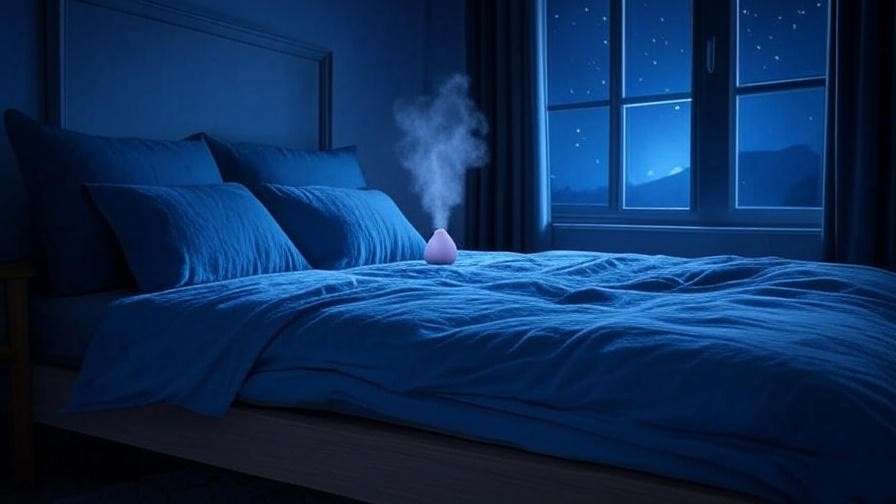
Your bedroom should be a sanctuary for sleep. Keep it cool (60–67°F, per the National Sleep Foundation), dark, and quiet. Invest in blackout curtains, a supportive mattress, and breathable bedding. Remove electronics to minimize distractions. Here’s a quick checklist:
- Use blackout curtains or an eye mask.
- Set room temperature to 65°F.
- Choose a mattress with medium-firm support.
- Add a white noise machine if external sounds persist.
Environmental psychology research shows that an optimized sleep space can improve sleep duration by up to an hour.
Ritual 4: Limit Screen Time and Blue Light Exposure
Blue light from phones, tablets, and laptops disrupts melatonin production, delaying sleep. A 2023 study in Nature found that two hours of evening screen time shifts melatonin onset by 90 minutes. To combat this, stop using screens 1–2 hours before bed or use blue light-blocking glasses. Set your phone to “night mode” after 7 p.m. For example, Jane, a 34-year-old teacher, cut her screen time by an hour and reported falling asleep 25 minutes faster within a week.
Ritual 5: Incorporate Evening Gratitude Journaling
Gratitude journaling fosters positive emotions, reducing stress and preparing your mind for rest. Spend 5 minutes writing three things you’re grateful for each night. Example prompt: “What moment today brought me joy?” A 2021 study in Journal of Positive Psychology found that gratitude practices improve sleep quality by 15% and boost overall happiness. Keep a notebook by your bed for consistency. This ritual aligns perfectly with the holistic well-being focus of Erome sleep.
Ritual 6: Use Aromatherapy for Relaxation

Aromatherapy harnesses the power of essential oils to promote relaxation and improve sleep quality. Scents like lavender, chamomile, and cedarwood have been shown to calm the nervous system. A 2022 study in Evidence-Based Complementary and Alternative Medicine found that inhaling lavender oil before bed reduced sleep latency by 10 minutes and increased deep sleep by 12%. Try this DIY bedtime spray: mix 10 drops of lavender essential oil, 5 drops of chamomile oil, and 2 ounces of distilled water in a spray bottle. Mist your pillow lightly before bed or use a diffuser for 20 minutes. Always dilute oils properly and consult a healthcare provider if you have allergies. This ritual taps into the sensory aspect of Erome sleep, creating a soothing pre-sleep atmosphere.
Ritual 7: Establish a Consistent Sleep Schedule
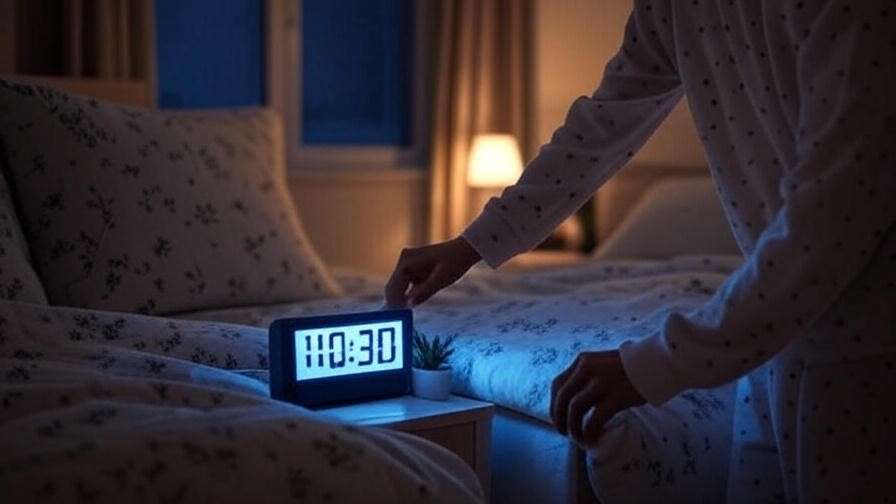
Your body thrives on routine. Going to bed and waking up at the same time daily—even on weekends—aligns your circadian rhythm, making it easier to fall asleep and wake up refreshed. The National Sleep Foundation recommends aiming for a consistent bedtime within a 30-minute window. For example, if you target 10:30 p.m., stick to it, even on Fridays. Dr. Michael Chen, a sleep scientist at Stanford University, explains, “A stable sleep schedule can improve sleep efficiency by up to 15%, enhancing REM and deep sleep stages.” To implement, set a bedtime alarm and avoid naps longer than 20 minutes. Consistency is key to unlocking the full benefits of Erome sleep.
How These Rituals Enhance Dreams and Happiness
The Connection Between Sleep and Vivid Dreams
Quality sleep, particularly in the REM (Rapid Eye Movement) stage, is essential for vivid dreams and emotional processing. REM sleep, which occurs in cycles throughout the night, helps consolidate memories and process emotions. A 2023 study in Neuroscience Letters found that individuals with longer REM sleep periods reported more vivid and meaningful dreams. The Erome sleep rituals—especially meditation and a consistent schedule—promote deeper REM cycles by reducing stress and stabilizing sleep patterns. Better dreams not only spark creativity but also enhance emotional resilience, a cornerstone of holistic well-being.
Sleep as a Foundation for Happiness
Sleep is a powerful driver of happiness. When you’re well-rested, your brain produces more serotonin and dopamine, neurotransmitters linked to joy and motivation. A 2024 study in Journal of Happiness Studies found that individuals who improved their sleep quality reported a 20% boost in daily mood and life satisfaction. Take Sarah, a 40-year-old graphic designer, who adopted Erome sleep rituals like gratitude journaling and screen-time limits. Within a month, she felt more energized, creative, and connected to her work and family. By prioritizing sleep, you lay the foundation for a happier, more balanced life, aligning with the mission of this website to foster holistic well-being.
Practical Tips for Implementing Erome Sleep Rituals
How to Start Small and Build Habits
Adopting all seven rituals at once can feel overwhelming, so start small. Choose one or two rituals that resonate most—like a pre-sleep routine or gratitude journaling—and practice them for two weeks. Use this sample weekly plan:
- Monday–Wednesday: Spend 15 minutes on a calming pre-sleep routine (e.g., reading or stretching).
- Thursday–Sunday: Add 5 minutes of gratitude journaling before bed.
- Week 2: Incorporate meditation 2–3 nights.
Habit formation takes 21–66 days, per a 2021 study in Behavior Research and Therapy. Track your progress with a journal or app to stay motivated.
Troubleshooting Common Challenges
Life gets busy, and obstacles like time constraints or distractions can derail your efforts. If you struggle to find time, shorten rituals (e.g., 5-minute meditation instead of 10). If family or work demands interrupt, communicate your sleep goals to loved ones and set boundaries, like a “no phones after 9 p.m.” rule. If you’re inconsistent, set reminders on your phone or pair rituals with existing habits (e.g., journal after brushing your teeth). Patience is key—small, consistent steps lead to lasting change.
Tools and Resources for Success
Enhance your Erome sleep journey with these evidence-based tools:
- Apps: Try Headspace for guided meditations or Sleep Cycle for tracking sleep patterns.
- Books: Why We Sleep by Matthew Walker, PhD, offers deep insights into sleep science.
- Products: Consider a lavender essential oil diffuser or a weighted blanket (studies show they reduce anxiety by 10–15%).
Always choose reputable brands and check reviews. These tools complement the rituals, making them easier to integrate into your life.
Frequently Asked Questions (FAQs)
How long does it take to see results from Erome sleep rituals?
Most people notice improvements within 2–4 weeks, though habit formation can take 21–66 days, according to a 2021 study in European Journal of Social Psychology. Consistency is key—start with one ritual and track your progress.
Can these rituals help with chronic insomnia?
While Erome sleep rituals are effective for many, chronic insomnia may require professional help. Consult a sleep specialist for personalized advice, but these rituals can complement treatment by reducing stress and optimizing your environment.
Are there risks to using aromatherapy or meditation for sleep?
Aromatherapy is generally safe when oils are diluted properly (e.g., 1–2% dilution for sprays). Avoid ingestion and test for allergies. Meditation is low-risk but may initially feel challenging—start with short sessions. Always follow expert guidelines.
How do I know if my sleep environment is optimized?
Use this checklist: room temperature at 60–67°F, blackout curtains or eye mask, supportive mattress, and minimal noise. If you wake frequently or feel unrested, reassess your setup and adjust one element at a time.
Conclusion
Better sleep is within your reach. The seven Erome sleep rituals—calming routines, meditation, optimized environments, screen-time limits, gratitude journaling, aromatherapy, and consistent schedules—offer a holistic, science-backed path to restful nights. By addressing both external and internal sleep barriers, these practices not only improve sleep quality but also enhance your dreams, happiness, and overall well-being. Start tonight with one ritual, like a 5-minute gratitude journal or a screen-free hour, and watch your nights transform. Share your progress in the comments or on social media, and explore our related articles on meditation and dreams for more ways to live your best life. Sleep well, dream big, and embrace the joy of a well-rested you.






